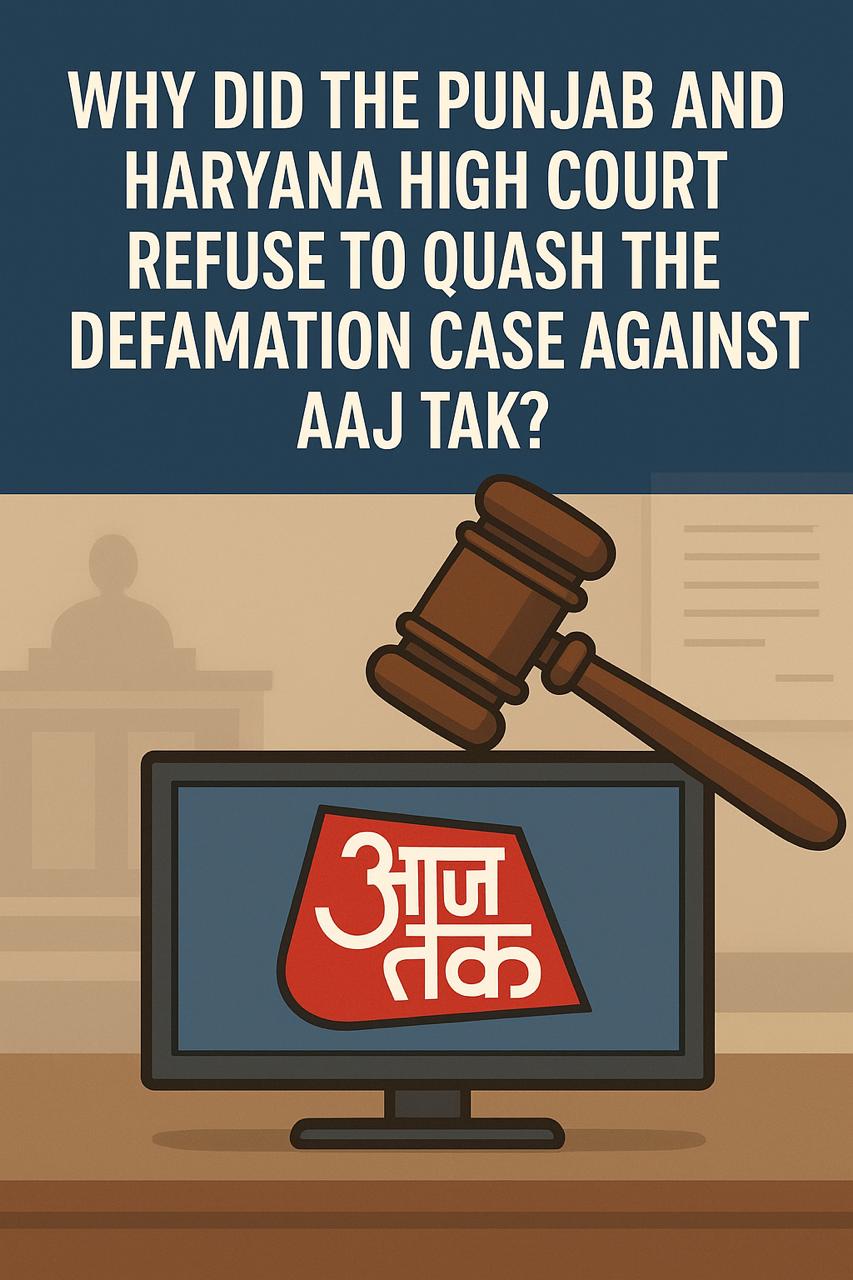Why the Punjab and Haryana High Court Refuses to Quash Defamation Case Against Aaj Tak
The bench observed that Punjab and Haryana High Court refuses to quash defamation case against Aaj Tak because the complaint disclosed a non-cognizable offence under Sections 499 and 500 IPC. Since such offences require judicial authorization for investigation, the Magistrate’s direction under Section 155(2) Cr.P.C. was held to be proper.
Magistrate’s Role in How Punjab and Haryana High Court Refuses to Quash Defamation Case Against Aaj Tak
The order highlighted that the Magistrate lawfully directed registration of a non-cognizable case, making the police investigation valid. This reasoning explains why Punjab and Haryana High Court refuses to quash defamation case against Aaj Tak, as the process was consistent with criminal procedure.
Section 156(3) and Why Punjab and Haryana High Court Refuses to Quash Defamation Case Against Aaj Tak
Aaj Tak’s counsel argued that the case should have fallen under Section 156(3) Cr.P.C., which bars FIRs for defamation. The judges pointed out that, in reality, no FIR had ever been filed the case had simply moved ahead under Section 155(2). This distinction was central to why the Punjab and Haryana High Court refuses to quash defamation case against Aaj Tak.
Legal and Media Implications as Punjab and Haryana High Court Refuses to Quash Defamation Case Against Aaj Tak
The ruling sends a signal that news organizations are not exempt from defamation accountability. The Court’s takeaway was that since the right procedure was followed, there was no reason to throw the case out. At the same time, it served as a reminder that while the press has freedom, it also has to stay within legal limits and answer for possible reputational harm.
Conclusion: Why Punjab and Haryana High Court Refuses to Quash Defamation Case Against Aaj Tak
By upholding the Magistrate’s direction and validating the chargesheet, the Punjab and Haryana High Court refuses to quash defamation case against Aaj Tak linked to reporting on Gopal Kanda and Sonali Phogat’s death. The decision illustrates that while the media enjoys freedom, it must also face scrutiny when allegations of reputational harm arise.
Author Information:
By Karthikeyan Ganesan, a law student from KKC College of Law, reporting on law and technology for Nyayasphere. Karthikeyan always likes to stay updated with current trends and important information regarding the law and cases across the country.

